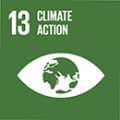This project aims to measure greenhouse gas emissions from carbon sinks, such as mangrove and saltmarsh, by developing low-cost sensors using open-source microcontrollers (Arduino), computers (Raspberry Pi) and the Internet of things (IoT), the network that connects devices to the internet.
Gas Emissions in Estuaries
These will assist with quantify the ecosystem service of carbon sequestration provided by mangrove and saltmarsh and determine their capacity to mitigate climate change.
One of the challenges faced in this project is to develop affordable sensors that would record and transmit CO2 and CH4 information across different zones of the estuary and expand our understanding of emissions across the spatial and temporal scales.
The team is composed by a mixture of early and mid-career researchers, thus this research project will also be used for mentoring and skill development activities, benefiting the future research of both more junior and more senior investigators.
The Team
Dr. Rafael Carvalho (Leader) is an ECR Associate Research Fellow at the School of Earth and Environmental Sciences (SEES). He is a physical geographer with a research focus on coastal sedimentology and geomorphology, water resources and marine conservation. Carvalho has a complementary interest in developing low-cost sensors for his research, and consequently envisaged the project and compiled the project team.
Dr. Kerrylee Rogers is an ARC Future Fellow at SEES interested in the response of coastal wetlands to climate change, particularly in their role in carbon store, sources and sinks. Rogers is project leader for a complementary existing UOW Global Challenges project, Blue Carbon Futures, and she will provide insight into the spatial and temporal variation in carbon stock and assist with site selection and implementation in Australia, and elsewhere as the project expands.
Dr. Simone Marsiglio is a lecturer at the School of Accounting, Economics and Finance and his research interests range from economic growth and fluctuations to environmental and population economics. Marsiglio is interested in applying multivariate statistics to resulting carbon values to determine economic benefits of coastal wetland carbon sequestration.
Dr. Hugh Forehead is an ECR Associate Research Fellow at SMART. Forehead has experience in several fields including IoT, marine ecology and mathematics. His knowledge of microbial biogeochemistry will be valuable for providing plausible biological mechanisms in modelling.
Dr. Johan Barthélemy is an ECR Associate Research Fellow at the SMART. His research interests include IoT, modelling and simulation, complex systems, and data analytics. Barthélemy will provide the necessary skills in hardware, software and simulations.
Mr Campbell Young is a PhD Candidate in SEES who is undertaking research on the geography of coastal wetland blue carbon. Young’s involvement is essential and ensures the project has longevity, knowledge transfer and increases his own research capacity.



 .
.